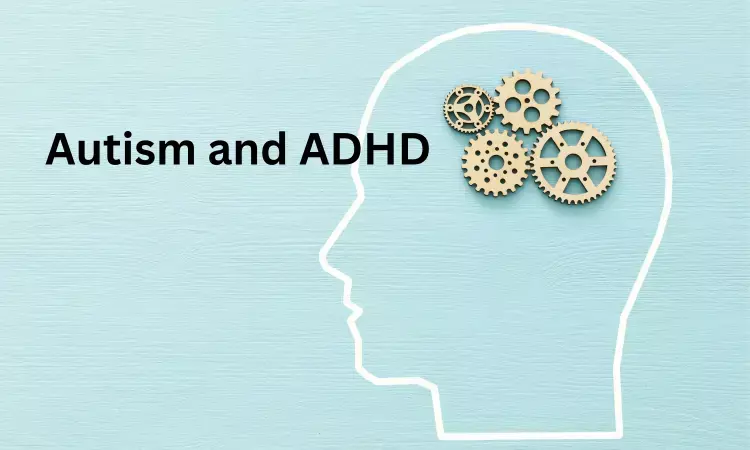- Home
- Medical news & Guidelines
- Anesthesiology
- Cardiology and CTVS
- Critical Care
- Dentistry
- Dermatology
- Diabetes and Endocrinology
- ENT
- Gastroenterology
- Medicine
- Nephrology
- Neurology
- Obstretics-Gynaecology
- Oncology
- Ophthalmology
- Orthopaedics
- Pediatrics-Neonatology
- Psychiatry
- Pulmonology
- Radiology
- Surgery
- Urology
- Laboratory Medicine
- Diet
- Nursing
- Paramedical
- Physiotherapy
- Health news
- Fact Check
- Bone Health Fact Check
- Brain Health Fact Check
- Cancer Related Fact Check
- Child Care Fact Check
- Dental and oral health fact check
- Diabetes and metabolic health fact check
- Diet and Nutrition Fact Check
- Eye and ENT Care Fact Check
- Fitness fact check
- Gut health fact check
- Heart health fact check
- Kidney health fact check
- Medical education fact check
- Men's health fact check
- Respiratory fact check
- Skin and hair care fact check
- Vaccine and Immunization fact check
- Women's health fact check
- AYUSH
- State News
- Andaman and Nicobar Islands
- Andhra Pradesh
- Arunachal Pradesh
- Assam
- Bihar
- Chandigarh
- Chattisgarh
- Dadra and Nagar Haveli
- Daman and Diu
- Delhi
- Goa
- Gujarat
- Haryana
- Himachal Pradesh
- Jammu & Kashmir
- Jharkhand
- Karnataka
- Kerala
- Ladakh
- Lakshadweep
- Madhya Pradesh
- Maharashtra
- Manipur
- Meghalaya
- Mizoram
- Nagaland
- Odisha
- Puducherry
- Punjab
- Rajasthan
- Sikkim
- Tamil Nadu
- Telangana
- Tripura
- Uttar Pradesh
- Uttrakhand
- West Bengal
- Medical Education
- Industry
Plasticizers like BPA and DEHP to influence autism and ADHD in children

Several studies report 50 to 70% of individuals with autism spectrum disorder (ASD) also present with attention deficit hyperactivity disorder (ADHD). From a clinical perspective, this high rate of comorbidity is intriguing. Is ADHD in fact always present in such cases? Do environmental factors trigger these neurological disorders?
A new study in PLOS ONE focused on two compounds, the Bisphenol-A (BPA) and Diethylhexyl Phthalate (DEHP). The major pathway for BPA and DEHP excretion is via glucuronidation. Glucuronidation makes insoluble substances more water-soluble allowing for their subsequent elimination in urine.
Few reports state detoxification of these two plasticizers is compromised in children with ASD and ADHD. Consequently, their tissues are more exposed to these two plasticizers, hence T. Peter Stein and team evaluated the consequences of retaining these two plasticizers and found that though ASD and ADHD are clinically and metabolically different both share a reduction in the efficiency of detoxification for BPA and DEHP with the reductions for BPA being statistically significant.
Investigators measured the efficiency of glucuronidation in three groups of children, 66 ASD, 46 with ADHD and 37 healthy controls. The children were recruited from the clinics of Rutgers-NJ Medical School. A urine specimen was collected from each child. Multiple mass spectrometric analyses including the complete metabolome were determined and used to derive values for the efficiency of glucuronidation for 12 varied glucuronidation pathways including those for BPA and MEHP.
The key findings of the study are
• Both fold differences and metabolome analyses showed that the three groups of children were metabolically different from each other.
• Of the 12 pathways examined, only the BPA and DEHP pathways discriminated between the three groups.
• Glucuronidation efficiencies for BPA were reduced by 11% for ASD (p = 0.020) and 17% for ADHD (p<0.001) compared to controls. DEHP showed similar, but not significant trends.
Researchers concluded that “ASD and ADHD are clinically and metabolically different but share a reduction in the efficiency of detoxification for both BPA and DEHP with the reductions for BPA being statistically significant.”
Reference: Stein TP, Schluter MD, Steer RA, Ming X (2023) Bisphenol-A and phthalate metabolism in children with neurodevelopmental disorders. PLoS ONE 18(9): e0289841. https://doi.org/10.1371/journal.pone.0289841.
MSc. Neuroscience
Niveditha Subramani a MSc. Neuroscience (Faculty of Medicine) graduate from University of Madras, Chennai. Ambitious in Neuro research having worked in motor diseases and neuron apoptosis is interested in more of new upcoming research and their advancement in field of medicine. She has an engrossed skill towards writing and her roles at Medical dialogue include Sr. Content writer. Her news covers new discoveries and updates in field of medicine. She can be reached at editorial@medicaldialogues.in
Dr Kamal Kant Kohli-MBBS, DTCD- a chest specialist with more than 30 years of practice and a flair for writing clinical articles, Dr Kamal Kant Kohli joined Medical Dialogues as a Chief Editor of Medical News. Besides writing articles, as an editor, he proofreads and verifies all the medical content published on Medical Dialogues including those coming from journals, studies,medical conferences,guidelines etc. Email: drkohli@medicaldialogues.in. Contact no. 011-43720751


